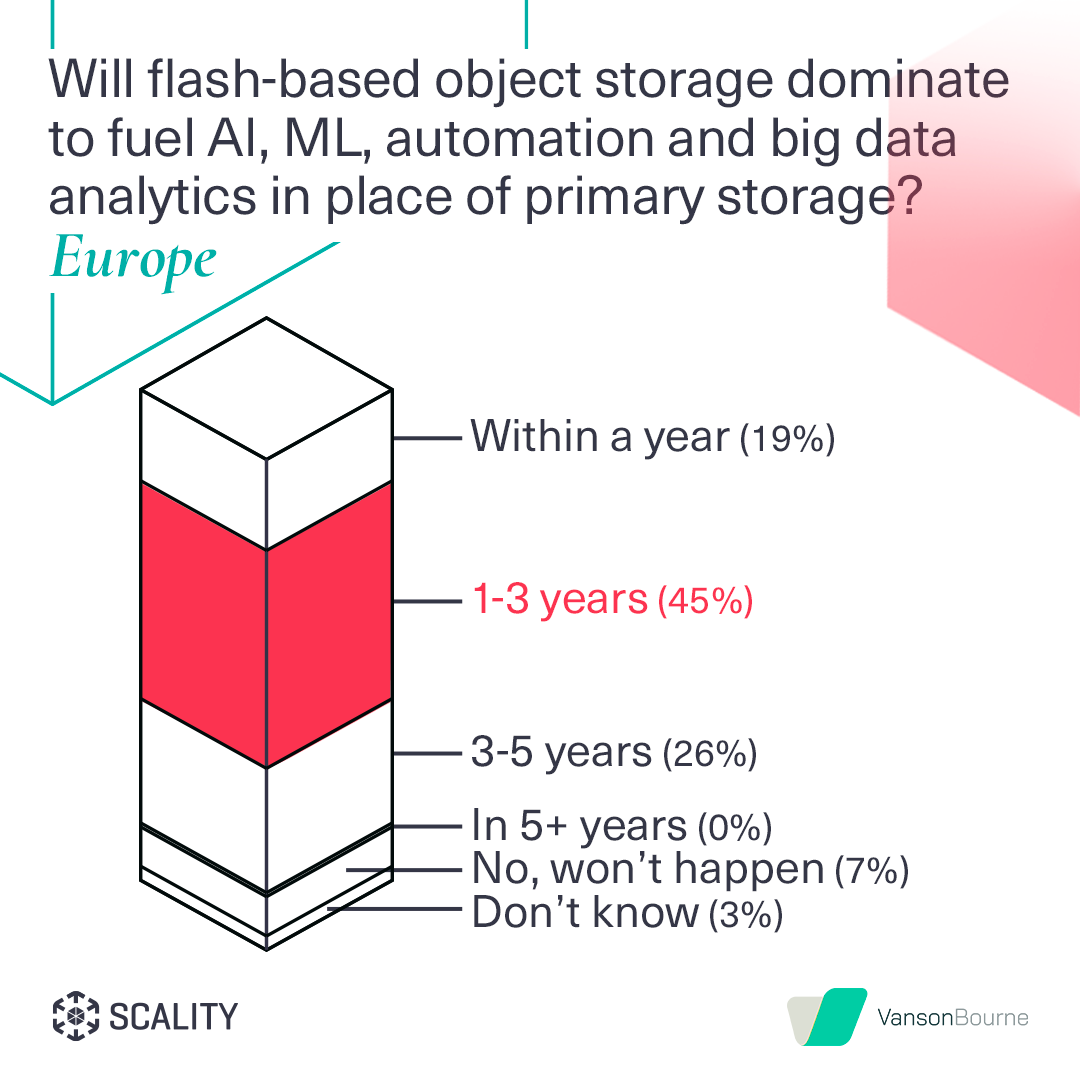Scality has published the results of an independent survey completed by IT decision makers across the UK, France and Germany. It revealed a fundamental shift in the industry towards flash-based object storage to fuel artificial intelligence (AI), machine learning (ML), automation, and big data analytics in place of other forms of primary storage. All-flash object storage provides comprehensive data protection of and rapid access to massive volumes of unstructured data, powering the heavy workloads of these digital business initiatives.
The survey indicates that Europe is mature for this change, with 90% of respondents across all three countries stating that this move to all-flash object storage will occur within five years. Notably, France seems most convinced that this digital transformation will happen in under three years (76%), followed by Germany (72%) and the UK (43%).
“As flash becomes available at higher densities and lower costs, it is now suitable for high-capacity data storage,” explained Paul Speciale, chief product officer at Scality. “Object storage has begun to embrace flash media and, as the cost of flash decreases, it is likely to become the default media for object storage and will effectively make object storage the new primary storage for a much broader range of applications.”
Not only does all-flash object storage provide extremely high performance, thereby accelerating AI/ML environments, empowering business intelligence/analytics, and increasing infrastructure performance and utilisation, it also lowers TCO and improves application development.
In the survey conducted by Vanson Bourne, IT decision makers across various industries including financial services, telecom, professional services, manufacturing, and retail, were asked: “Do you think flash-based object storage will dominate storage platforms to fuel artificial intelligence (AI), machine learning (ML), automation, and big data analytics, in place of other forms of primary storage?”
Key findings in the UK include:
• The vast majority of UK respondents (77%) said this move to flash-based object storage will happen in the mid-term (one to five years), while respondents in France (76%) and Germany (72%) leant towards the short term (under three years).
• 3% of respondents said that it would occur within a year, 40% between one and three years, 37% between three and five years, and 1% beyond five years. 9% said it will not happen and 10% didn’t know.
• In the UK, participants from the IT, technology and telecom, (9%) and the retail, distribution and transport (5%) sectors were the only to state that this digital transformation will occur within one year.
• UK respondents in the business and professional services sector were most likely to state that the move to flash-based object storage will occur between three and five years, at 71% compared to an average across all UK respondents of 37%.
• UK respondents from smaller organisations (1,000 - 2,999 employees) were more likely to state that this transformation will occur within five years compared to larger organisations (3,000+ employees), at 92% to 76% respectively. Smaller organisations were also more likely to say all-flash object storage will dominate in the short to mid-term (8% under one year, 50% one to three years, 33% three to five years and 0% over five years). In contrast, larger organisations leaned more evenly towards the mid-term (1% under one year, 37% one to three years, 38% three to five years, and 1% over five years).
These European results are in line with research carried out by ESG in the US earlier in the year, which found that 77% of IT professionals at organisations currently using all-flash object storage said the technology has had a high impact or has been a game-changing technology in their on-premises storage environment.




